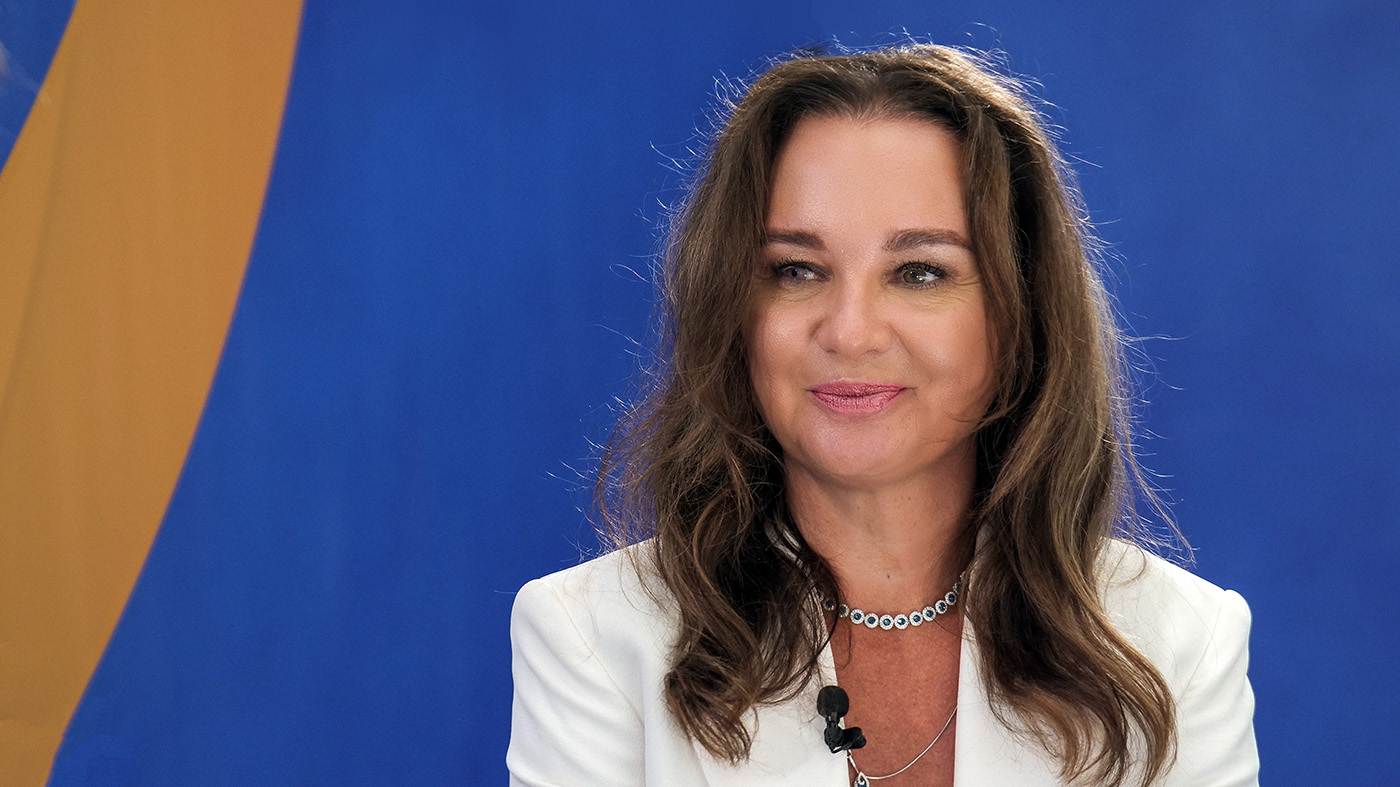The discussion also featured other signatories to the document, including representatives of Ukraine’s Ministry of Economy and PrivatBank.
Why Ukraine Needs the Charter
Petruk stressed that the document is not just a declaration, but the first step towards creating a modern labour market.
The war has changed how businesses operate. Today, both the government and companies are focused on people. For example, while Metinvest currently has around 4,000 vacancies, it is difficult to find qualified specialists because many people have relocated to safer regions. The situation is further complicated by the fact that the Group’s enterprises are located near the front line, in Zaporizhzhia, Kryvyi Rih and Kamianske.
She explained: “The Charter is primarily aimed at building the labour market and changing the approach to recruiting and training personnel, with people at the centre. Metinvest already operates this way. We are restructuring our processes now and planning production based on the availability of qualified specialists. That is why we invest in training, adaptation and reintegration of personnel.”
Petruk added that most of the Charter’s principles are shared by companies across different sectors because they are rooted in a people‑centred approach, mutual respect, reconstruction and the return of veterans.
She stated: “We have a strong, well‑thought‑out document that is open to any business: large, medium or small. If a company joins and adheres to the principles of the Charter, everyone benefits: business, the state and, most importantly, the employees.”
What the document means for business, employees and the country
According to Metinvest’s chief sustainability officer, joining the Charter is a timely necessity for large businesses because it helps them to operate more effectively, attract personnel and deliver operational plans.
She noted: “Candidates choose an employer when they see that it cares about people, acts responsibly and puts employees at the centre of all business processes. It is not only businesses and candidates that need to adapt, but society as well.”
Petruk believes that one of the most important provisions of the Charter is the return and reintegration of veterans into civilian life. In addition, it provides opportunities for learning and development, as well as equal rights for women and men.

At the same time, the Human Capital Resilience Charter sends a signal to global businesses and future investors: Ukraine is serious about developing its human potential.
Metinvest’s chief sustainability officer noted: “Yes, we are not yet at the finish line of this journey, but we are moving forward confidently and taking significant steps. It is our choice to build a country where people are at the centre of attention. This is not only the essence of the Charter but also the foundation of Metinvest’s philosophy: people create the business, and they are our greatest value.”
Opportunities offered by the Charter
Tetiana Berezhna, then Deputy Minister of the Economy, reported that signatories to the Charter will even be able to save money. They will be the first to gain access to various government programmes, including those for creating workplaces for people with disabilities.
She commented: “We have a programme through which employers can receive over UAH100,000 if they create paid jobs for people with disabilities. The companies that have united around the Charter will find out about all the opportunities as quickly as possible.”
Berezhna also noted that around one million women in Ukraine are on extended maternity leave or caring for family members and are currently unable to work.
She stated: “If we activate this reserve and create the necessary conditions for them, our economy will become significantly stronger.”
At Metinvest, women already hold roles that were previously considered traditionally male. Petruk added: “We have female excavator and crane operators. Before production was suspended in Pokrovsk, women were even working underground there. Of course, expanding these opportunities requires certain conditions: investment, retraining and time. But the most important thing is the motivation of the women themselves. That motivation exists.”
In her view, Ukrainian women and men will be the driving force behind the country’s future recovery. Petruk stated: “We place special hope in young people, whom it is important to bring back home and involve in the reconstruction. After all, it is the younger generation that represents our future.”
The participants in the discussion also expressed their readiness to support youth career guidance provided by the Kateryna Osadcha Foundation.
To recap, Ukraine signed the Human Capital Resilience Charter during the Ukraine Recovery Conference 2025 on 11 July in Rome. The document was signed on behalf of the state by Ukraine’s Ministry of Economy, Ministry for Veterans Affairs and the National Bank, and on the business side by Metinvest, PrivatBank, DTEK and Naftogaz of Ukraine. In total, over 100 Ukrainian companies are ready to join the Charter. The government plans to attract around 500 businesses.
The Charter aims to provide businesses with effective tools to support and develop human capital. This ranges from helping veterans, internally displaced persons, people with disabilities and young people, to promoting inclusivity and combating gender stereotypes.
